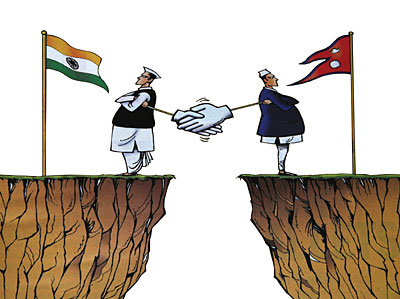 |
The Khalistan movement resulted in the assassination of one of the country's most powerful Prime Ministers ever, Indira Gandhi. Delhi had rigged the 1987 Jammu and Kashmir assembly elections, sowing the seeds of a separatist movement that, with Pakistani backing, has ravaged the state ever since.
The northeast was in turmoil and violence became an entrenched part of Assamese politics. The IPKF experiment in Sri Lanka had gone terribly wrong. Pakistan, with Chinese help, was developing nuclear capabilities. And despite some reforms the economy was in crisis, and foreign exchange reserves had almost run out. All of this was taking place in the backdrop of a weak political centre in Delhi. Congress hegemony had broken down, newer caste alignments were taking shape, the Hindu right was gaining strength, and the era of coalition governments was in its nascent stage.
But as usual, defying all doomsday predictions, India not only survived but thrived in the 1990s and after. There were episodic issues, but the centre regained strength. Older parties came to terms with rising regional aspirations. Newer elites were accommodated. Communal riots occurred, but did not destroy the larger Hindu-Muslim equilibrium. Indo-Pakistan tensions persisted, and the Kashmir militancy grew, but India's unity held. In fact, between 2002-8, violence in Kashmir steadily dipped.
The left did warn that inequality was increasing, but economic reforms unleashed India's entrepreneurial energies and created a huge middle class. The world was forced to recognise India, and its growing political and economic might, on largely Delhi's terms. And from being hyphenated with Pakistan, India came to be spoken about in the same breath as China as future superpowers.
While Indian growth remains robust, the sense of being under siege is once again unmistakable in power corridors in the Indian capital. For four months now, street protests have rocked Kashmir. The administration's confused and then repressive handling of the situation has led to further alienation, which the separatist leadership has capitalised on.
Senior officials believe this is a passing phase, but outside observers say this is unprecedented. A new lot of young, radical leaders, many inspired by Islamism, have emerged. Even if the centre takes major steps like repealing draconian security legislations, a long-standing demand, it may not be enough to douse the anger.
The Naxal insurgency in central India is growing slowly, but systematically. The state's hard security approach has eliminated many top Maoist leaders. Politically, mainstream parties are trying to make inroads into the tribal belt and appropriate some Maoist issues. But security experts predict the violence will only increase, the Maoists will continue to have a fertile constituency as a result of inequitable state policies, and urban areas may be targeted.
In the northeast, the recent 68 day Manipur blockade was a reminder that many complex identity and resource related battles in the region remain unresolved.
Then there is the concern that another Mumbai-type attack is possible. The way events are unfolding in the Af-Pak theatre will have troubling implications for India. A 'tough' home minister is on top of intelligence inputs and coordinating responses. Chinese assertiveness has become an increasing worry, with the prime minister for the first time hinting last week that India may need to respond.
Nepal often neglects this broader context. India is insecure, but paradoxically in some ways, it is also strong and belligerent. If there is an attack in its territory because of a lapse, deliberate or not, from Nepal's side, the security establishment will unleash its destructive potential. The first target will be closing the border, which will have enormous implications for our people and politics.
The Nepali state, for the sake of the Nepali people and the bilateral relationship, must be sensitive to Delhi's security concerns. Modernising security systems at the Kathmandu airport, strengthening the immigration systems, allowing sky marshals, and even considering the extradition treaty do not really erode our sovereignty. The real loss of sovereignty is when our politicians beg diplomats to support them to become the PM, or get used in games India plays in Nepal's internal politics.
The Nepali state's inefficiency and insensitivity is strengthening the Indian security hardline approach. If the Delhi hawks win, the Nepali people will lose.
SEE ALSO:
PUBLISHER'S NOTE
Interview with Indian Ambassador Rakesh Sood
Learning from Peru's transition, RAUL SCHIAPPA PIETRA



